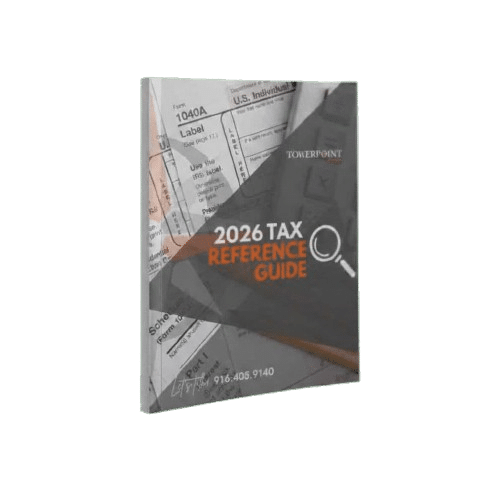Understanding trusts is essential for anyone with significant wealth, but it is particularly critical for high-net-worth individuals who want to protect assets, minimize estate taxes, and ensure their wealth benefits future generations. In 2025, trust planning is more urgent than ever because of upcoming changes to federal estate tax laws. At Towerpoint Wealth, our fiduciary relationship with clients means we focus solely on your best interests when creating trust strategies that match your personal goals, family dynamics, and long-term vision for family wealth.
What Is a Trust?

A trust is a legal arrangement in which a grantor transfers property and other trust assets to a trustee, who manages them for the benefit of specific beneficiaries or designated beneficiaries. The trust document spells out the terms of the trust, including who will benefit, how trust assets will be used, and when they will be distributed. Trusts can hold assets such as real estate, bank accounts, investment portfolios, or even lifetime gifts intended for certain family members.
When you establish a trust, you create a separate legal entity that becomes the legal owner of the trust property. This arrangement allows you to retain control if desired, or pass control to a professional trustee or sole trustee, depending on whether the trust is revocable or irrevocable. The trust account can then manage assets, produce an income stream, and eventually distribute the remaining assets according to the trust agreement.
How Trusts Work in Estate Planning
Estate planning often begins with a basic understanding of how a trust fund functions in relation to a will. A will becomes public record when it goes through the probate process in probate court, which can be lengthy and costly. A trust, by contrast, allows you to avoid probate, protecting your privacy and ensuring a faster transfer of assets to your trust beneficiary.
When the person dies, the trustee follows the trust deed and trust law to administer the trust account in accordance with the terms of the trust. If assets transferred to the trust are properly titled, the probate process is not required. This protects both your beneficiaries and your intentions, and keeps trust administration out of public record.
Types of Trusts

Revocable Trust
A revocable trust, also known as a revocable living trust, allows the grantor to retain control over trust property during their lifetime. The same person can serve as both the trustee and trust beneficiary while they are alive, and they can change the trust document or dissolve it entirely. While a revocable trust can avoid probate and provide management of trust assets during incapacity, it does not offer asset protection or help minimize estate taxes.
Irrevocable Trust
An irrevocable trust cannot be easily changed once it is established. When assets are transferred into an irrevocable trust, they are removed from the taxable estate, which can provide significant tax savings and asset protection. Irrevocable trusts are powerful tools for tax planning, especially for clients with a large taxable estate who want to minimize estate taxes before the 2025 exemption sunset.
Living Trusts and Testamentary Trusts
Living trusts, including inter vivos trusts, are created and funded during the grantor’s lifetime. Testamentary trusts are created through a will and take effect after the grantor's death. Testamentary trusts can serve specific purposes, such as providing for a surviving spouse, managing assets for minor children, or supporting a disabled beneficiary without affecting their government benefits.
Specialized Trust Strategies

Irrevocable Life Insurance Trust (ILIT)
An ILIT removes life insurance proceeds from your taxable estate. The trust agreement will direct how those proceeds are used, often to provide liquidity to pay estate taxes or to hold lifetime gifts for specific beneficiaries.
Grantor Retained Annuity Trust (GRAT)
A GRAT allows you to transfer assets into a trust account while retaining an annuity for a set term. At the end of the term, the remaining assets go to the designated beneficiaries, often with minimal gift or estate tax impact.
Qualified Personal Residence Trust (QPRT)
A QPRT allows you to transfer property, such as your primary residence, into a trust while retaining the right to live there for a certain period. This removes the property from your taxable estate while allowing you to continue to enjoy it.
Spousal Lifetime Access Trust (SLAT)
A SLAT allows one spouse to transfer assets to an irrevocable trust for the benefit of the other spouse, removing those assets from the taxable estate while maintaining indirect access to them.
Dynasty Trust
A Dynasty Trust can hold assets for multiple generations, avoiding estate taxes over time and protecting trust property from creditors or divorce. This structure ensures family wealth is preserved for future generations.
Credit Shelter Trust
A credit shelter trust, often used by married couples, maximizes use of each spouse’s federal estate tax exemption to reduce taxes on the taxable estate after the surviving spouse passes away.
Charitable Trusts
Charitable Lead Trusts and Charitable Remainder Trusts combine philanthropy with tax savings. A charitable trust can be revocable or irrevocable, depending on your goals.
Special Needs Trust
A special needs trust provides for a disabled beneficiary while preserving their eligibility for government benefits.
Spendthrift Trust
A spendthrift trust restricts the trust beneficiary’s ability to access trust assets directly, which can protect assets from creditors or poor financial decisions.
The 2025 Estate Tax Exemption Sunset

The current federal estate tax exemption in 2025 is $13.99 million per individual. Unless Congress acts, this amount will be reduced by about half starting in 2026. For individuals with significant wealth, this change could dramatically increase estate taxes. Trust planning, including the use of irrevocable trusts, credit shelter trusts, and SLATs, offers a limited-time opportunity to minimize estate taxes and protect assets before the exemption decreases.
Choosing the Right Trust
Selecting the right trust involves evaluating your goals, family members’ needs, and tax planning priorities. Questions to consider include whether you want to retain control of trust assets, whether asset protection is important, and how you want the trust fund to support your trust beneficiary. A qualified attorney and a financial advisor can help match your objectives with the right trust document and trust agreement.
How Trusts Fit into a Comprehensive Wealth Plan
Trusts are not stand-alone solutions. They should be integrated with wills, powers of attorney, and sometimes family trust or LLC structures to manage assets efficiently. Estate planning should also consider lifetime gifts, capital gains implications, and provisions to hold lifetime gifts in trust for specific beneficiaries.
Common Mistakes in Trust Planning
One of the most common mistakes is choosing the wrong trustee. Whether it is a professional trustee, successor trustee, or a court appointed guardian, the trustee must act in the best interests of the beneficiaries and follow the prudent investor rule. Another mistake is underfunding the trust account or failing to transfer property into it, which prevents it from working as intended. Ignoring changes in trust law, estate taxes, or capital gains rules can also undermine your planning.
Frequently Asked Understanding Trusts Questions
What is the difference between a revocable trust and an irrevocable trust?
A revocable trust can be changed or revoked during the grantor’s lifetime, while an irrevocable trust cannot be easily altered. Both can avoid probate, but only an irrevocable trust removes assets from the taxable estate.
Can a trust help me avoid probate?
Yes, both revocable and irrevocable trusts can avoid probate if assets are properly titled in the trust’s name.
Do I need a trust if I have a will?
Many people benefit from having both. A will covers assets outside the trust, while the trust document controls the trust account and can manage assets during incapacity.
Who should serve as my trustee?
You may serve as your own trustee in a revocable living trust, but for an irrevocable trust you might appoint a professional trustee or trusted family member. You should also name a successor trustee.
Can a trust minimize estate taxes?
Yes, certain irrevocable trusts, credit shelter trusts, and other structures can remove assets from your taxable estate, leading to significant tax savings.
Towerpoint Wealth’s Role
As fiduciary wealth advisors, Towerpoint Wealth ensures your trust fund is designed and administered in a way that aligns with your best interests. We coordinate with your trust attorney, manage assets within the trust account, and help family members understand the purpose and terms of the trust. This collaborative approach ensures the trust document reflects your wishes and that assets transferred to the trust are protected and used effectively.







